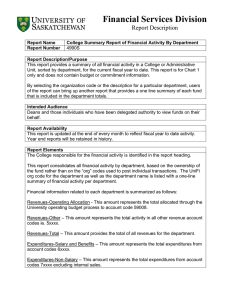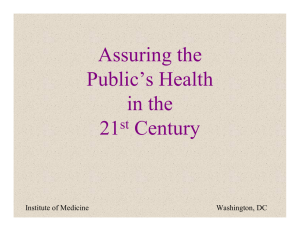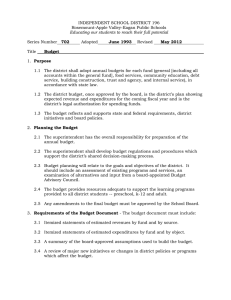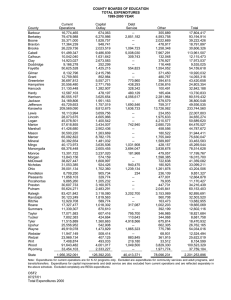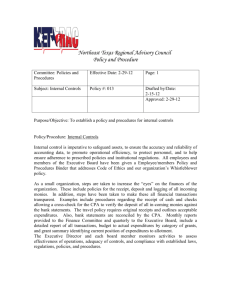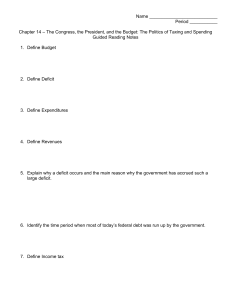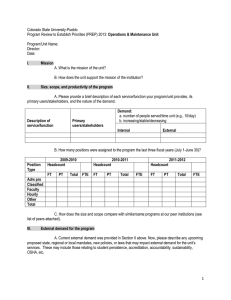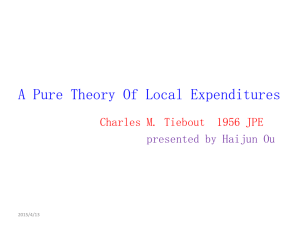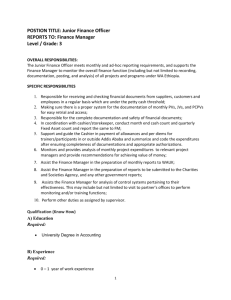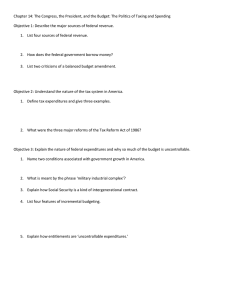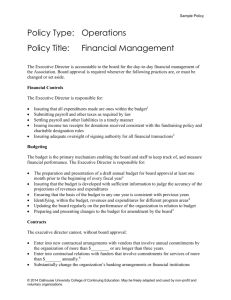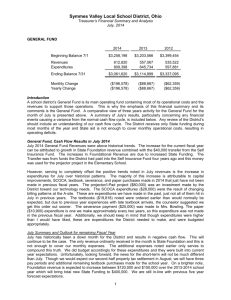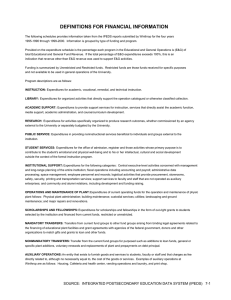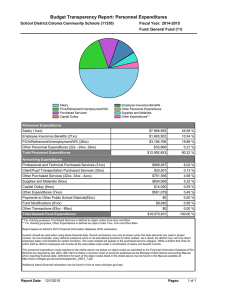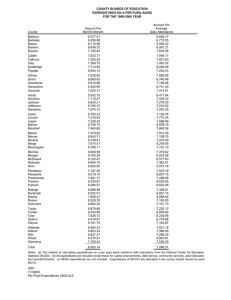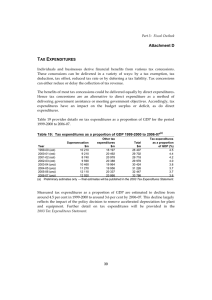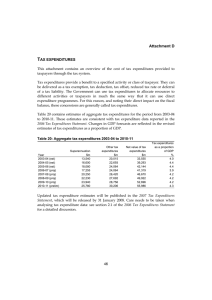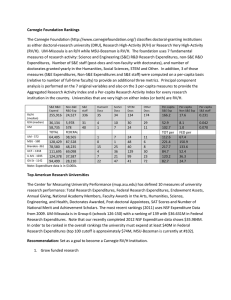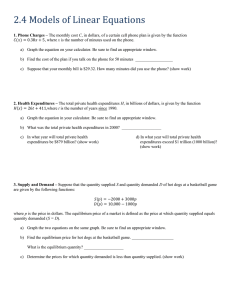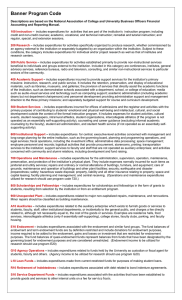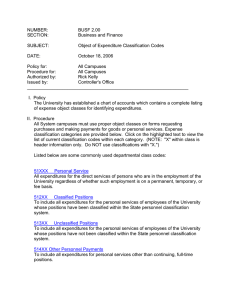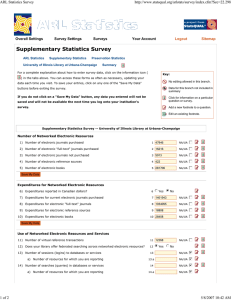ABCs of Budgeting
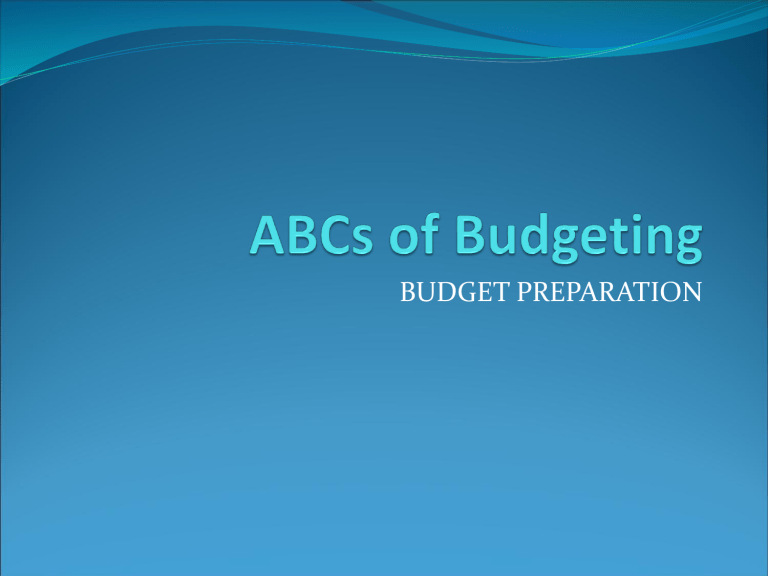
BUDGET PREPARATION
What is a Budget
An itemized summary of expenditures
Total sum of money allocated to your department
A statement of the financial position of a department/organization
A plan for spending money for the designated period
Useful for projecting future expenditures
Characteristics of a Budget
A well thought out plan
Detailed
Contains estimated expenditures
Includes appropriate subtotals and totals
Concerning a defined length of time
Explanation of activities
Working Definition
A budget is the plan for your department. It contains detailed itemized estimates of all expenditures and contributions from all sources
AND
Also a budget includes the amount and distribution of funds needed to perform the project activities over the fiscal year.
Types of Budget Concepts
Line Item
Continuation
Performance
Planning
Management By Objective (MBO)
ZBB (Zero Based Budgeting)
EXAMPLE OF BUDGET
KEY COMPONENTS
Salary and Fringe Benefits
Operational
Capital
2011
General Fund Operating
Expenditures
Operations
23%
Capital
0%
Salaries and Fringes
77%
Total = $432,956,364
2011
General Fund Revenue Budget
Intergovernmental Revenue
5%
Reimbursement for
Services
7%
Miscellanous
2%
Charges for Services
15%
Use of Money and Property
2%
Fines and Forefeitures
4%
License, Permits &
Registrations
2%
Taxes
63%
Total - $440,926,537
BUDGET PREPARATION
S W O T ANALYSIS
Strengths
Weaknesses
Opportunities
Threats
BUDGET PREPARATION
WHAT ARE YOUR STRENGTHS?
WHAT ARE YOUR WEAKNESSES?
BUDGET PREPARATION
WHAT ARE OPPORTUNITIES THAT ARE VIABLE AND POSSIBLE
TO IMPLEMENT?
Are those opportunities realistic?
Are they cost effective
Are they attainable?
Short term
Long term
IF THERE IS A CHANGE WILL IT BECOME A THREAT TO
PERFORMING MANDATED FUNCTIONS IN YOUR OFFICE?
Be Proactive – in minimizing potential threats to changes that may occur
Change potential threats into an opportunity to explore new opportunities for providing a service delivery
HOW DO YOU PREPARE YOUR
BUDGETS
Largest line item is Personnel
Review every position and job functions
Understand why your office is doing what it is doing
Operations
Determine if you can cut costs by doing something more efficient
HOW DO YOU PREPARE YOUR
BUDGETS
Project your expenditures for the year based on the year to date total
Was there an activity performed that will not be done in the upcoming year?
Example:
cut down on publishing and printing a management book mainly used for internal purposes. Place it online for accessibility
Capital
Is this expense necessary to adequately perform job functions
Understand why your office is doing what it is doing
FY 2011 CHALLENGES
Property taxes collected down
Assessments for commercial taxes are down
Fines and Fees collected down
Potential Health Benefits increase
Potential decrease in State funding for grants
Quality of Services jeopardized (asking staff to do more with less)
No Merit Increase for Staff for the 4 th year
Hiring Freeze in Place for the last 2 years
Unfunded Mandates verses Funded Mandates
EFFICIENCIES
Question cutting a budget line item
Does making the change make your service delivery more efficient?
Does an increase in the use of technology equate to less personnel and decrease in operational expenses?
E-filing
Paperless Systems
Digital Courts (long term)
2012
Budget Resolution
Revenue Expenses
APPROACH FOR FUTURE
TO ACCOMPLISH THE MISSION OF YOUR
DEPARTMENT/ORGANIZATION
Changed
Modified, and/or
Redirected
BECOME A SOUND FISCAL AND PROACTIVE AGENT
OF CHANGE FOR THE CITIZENS YOU REPRESENT
AND SERVE
